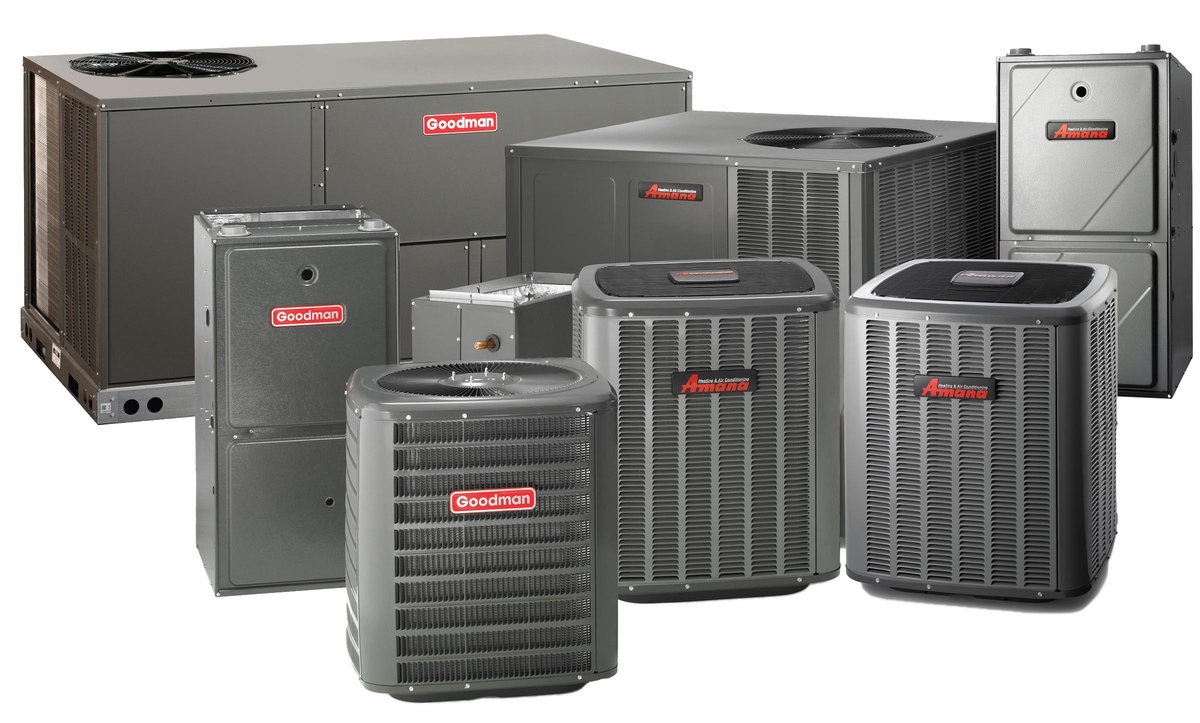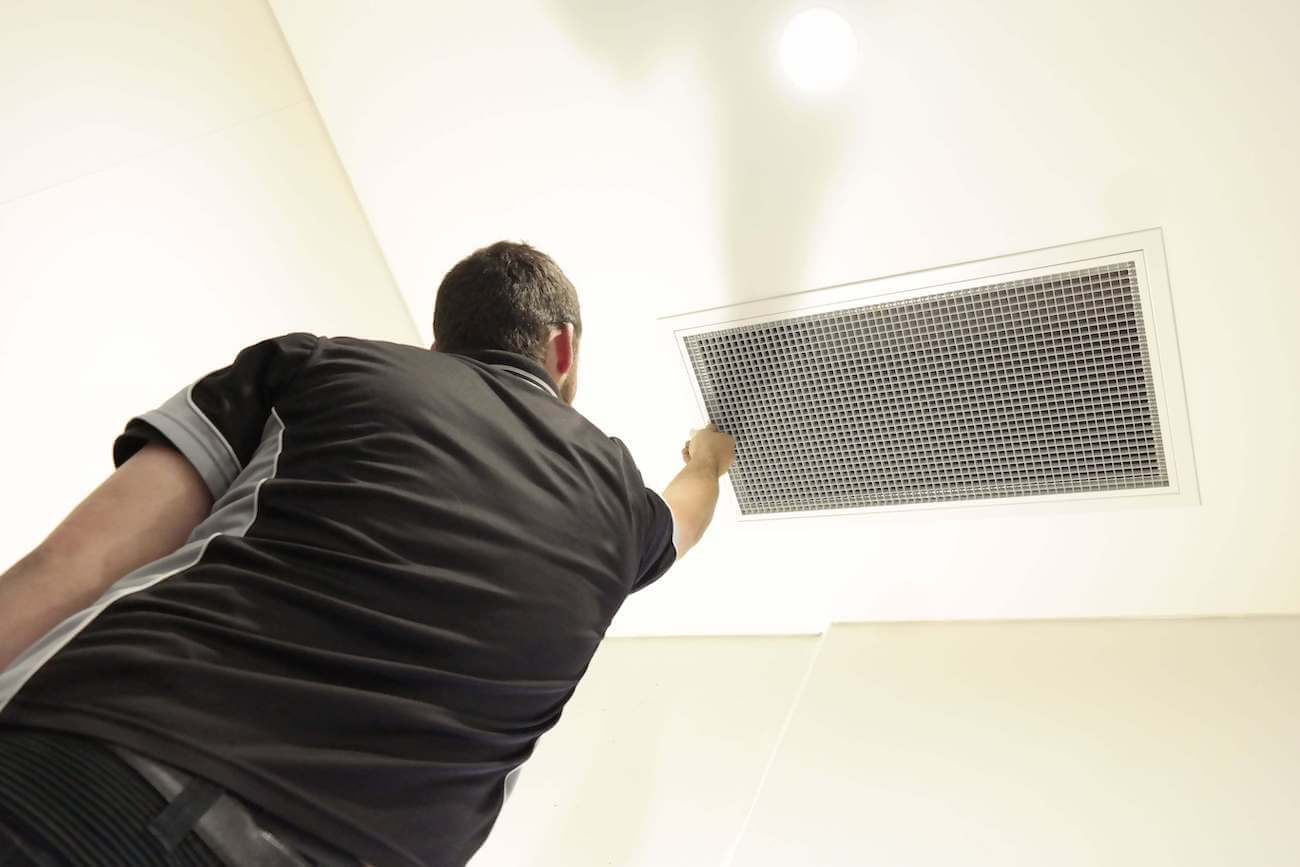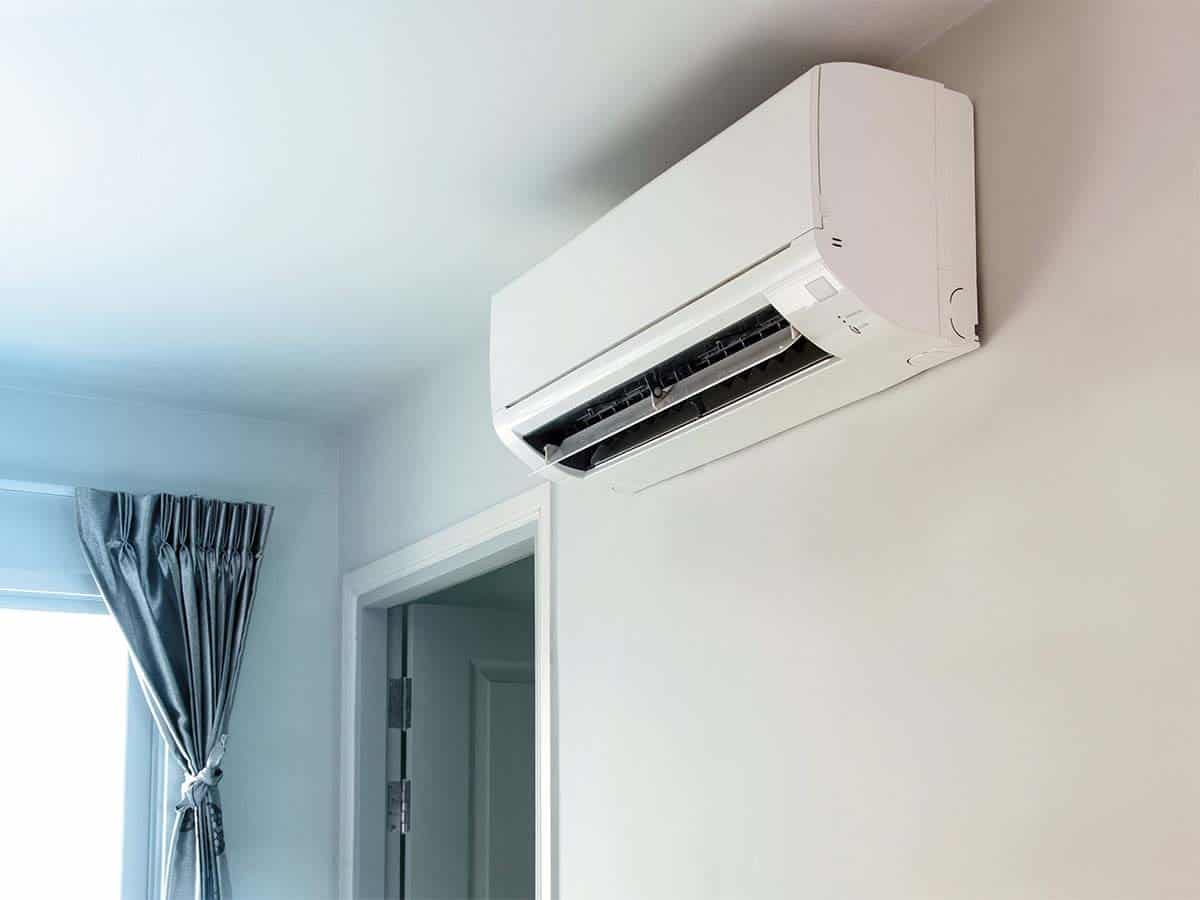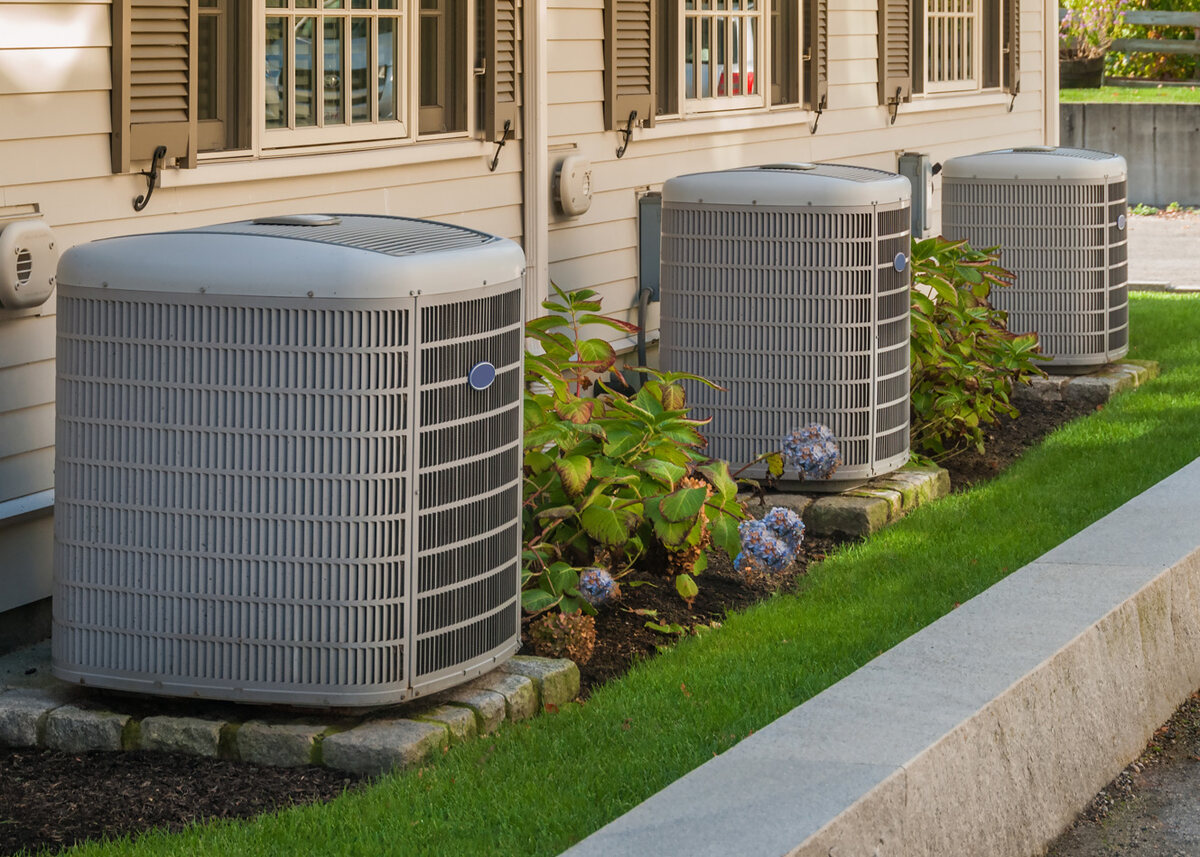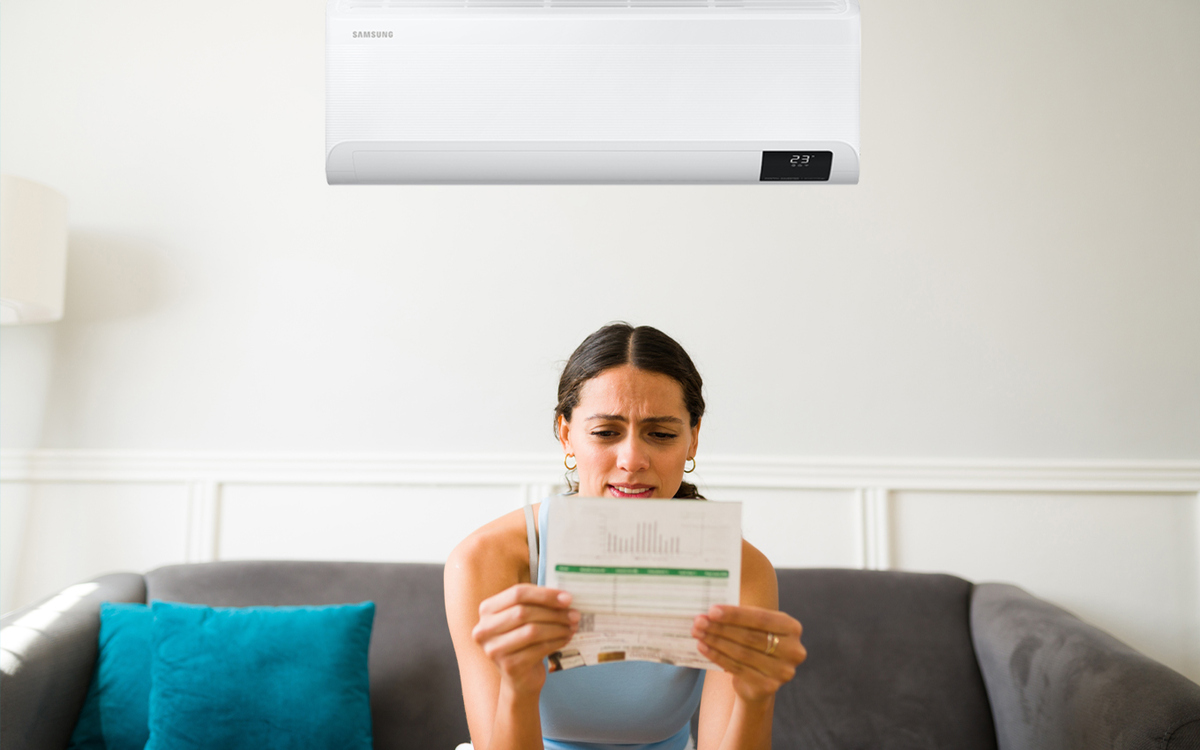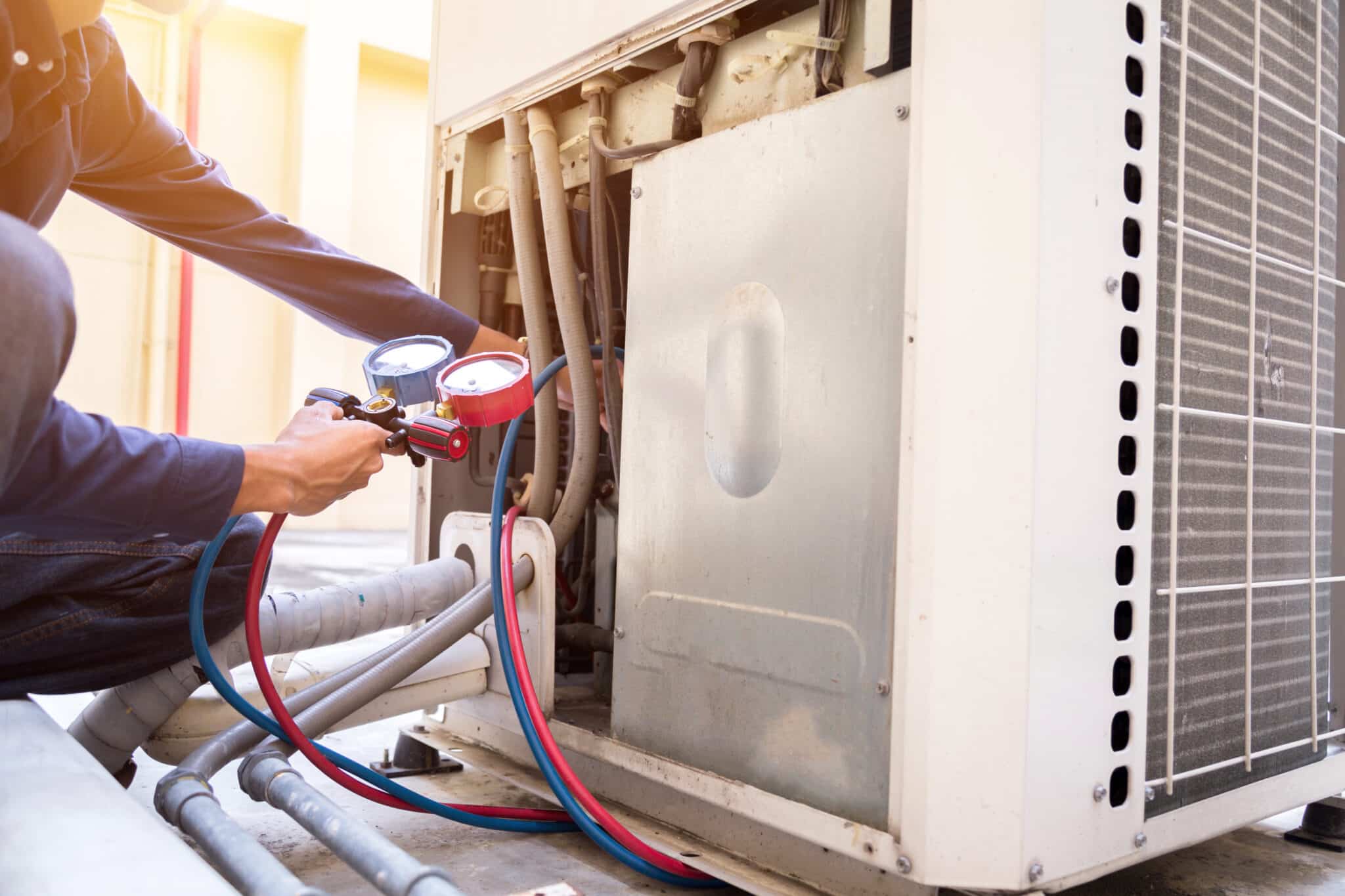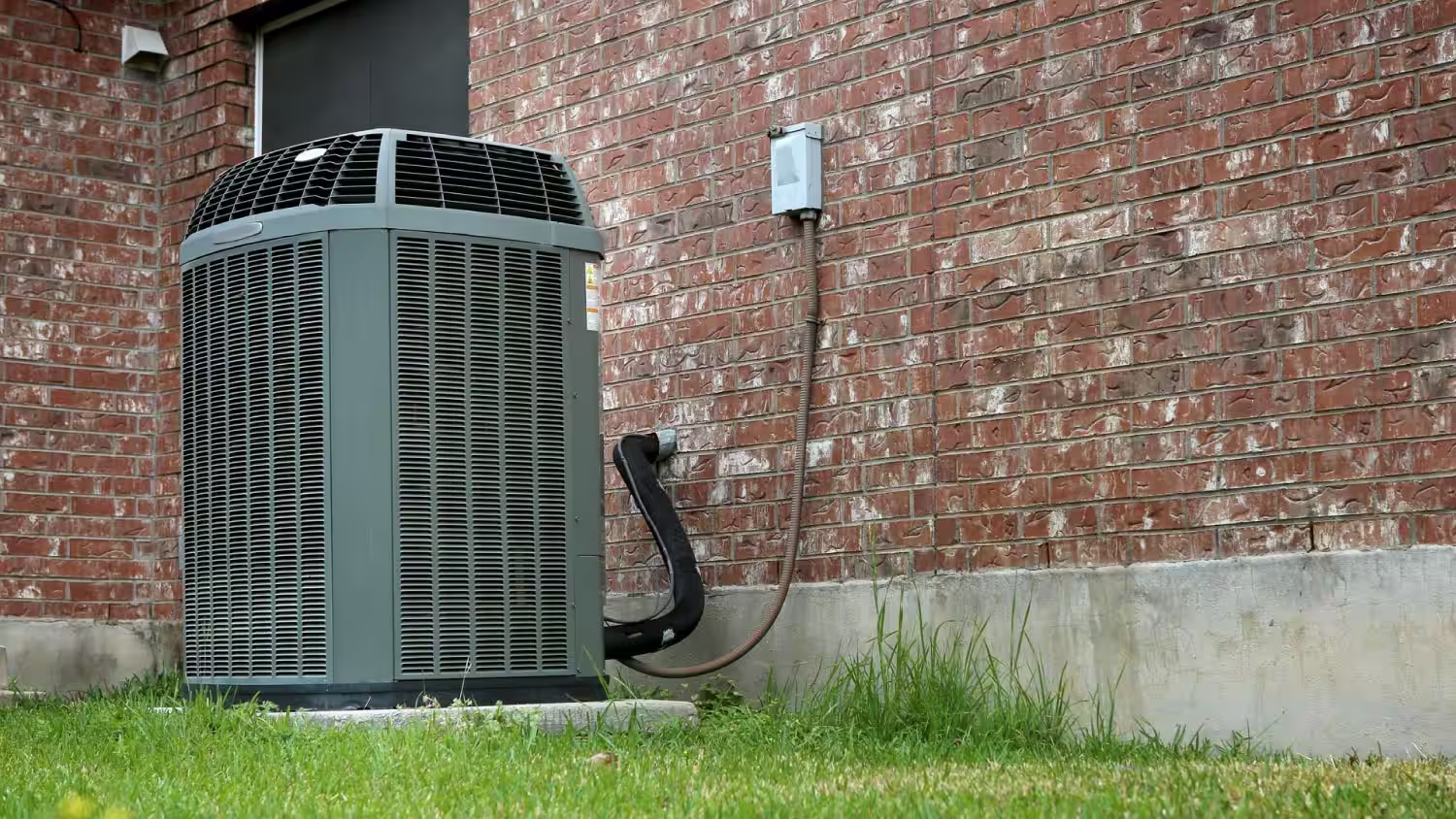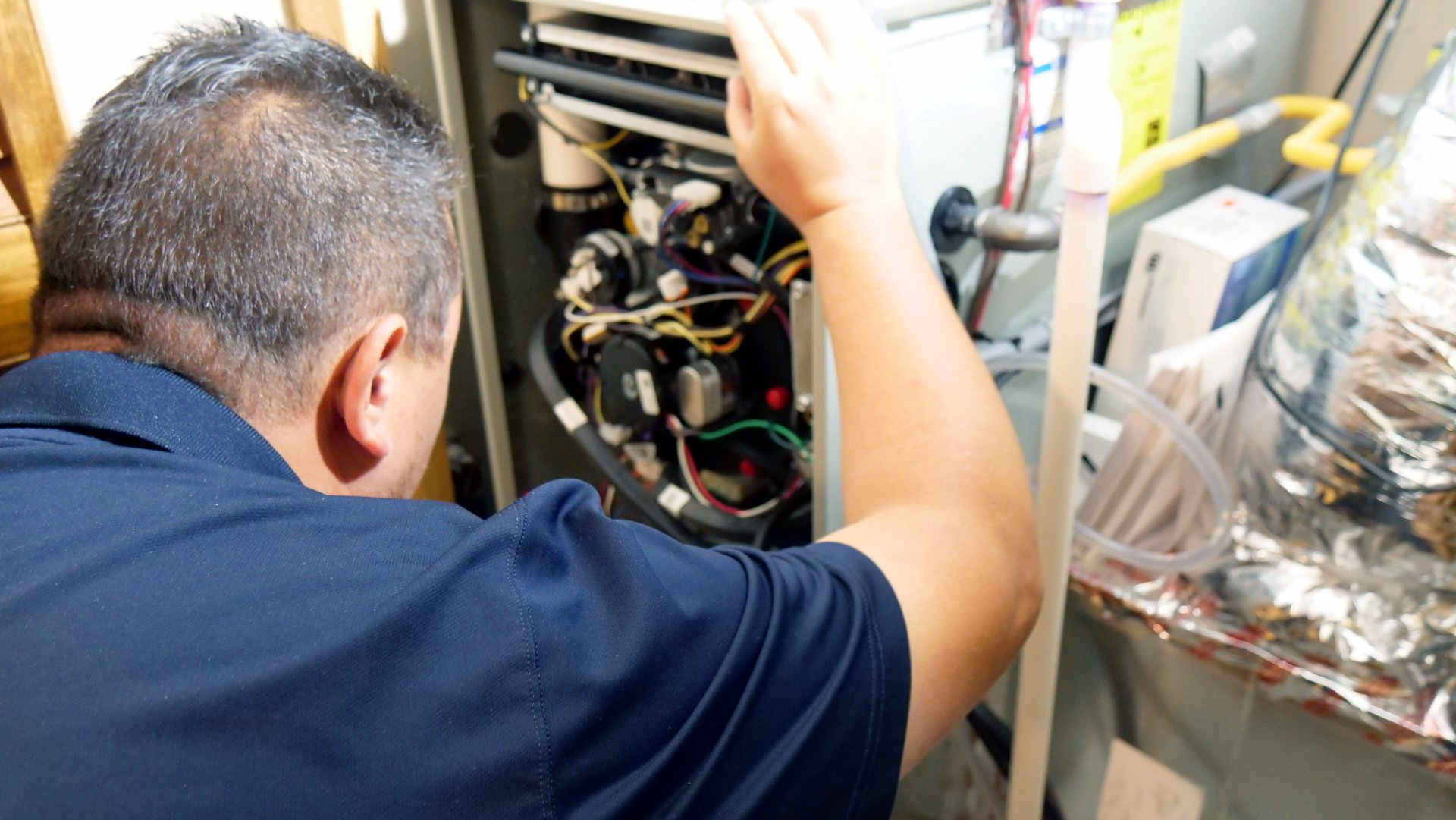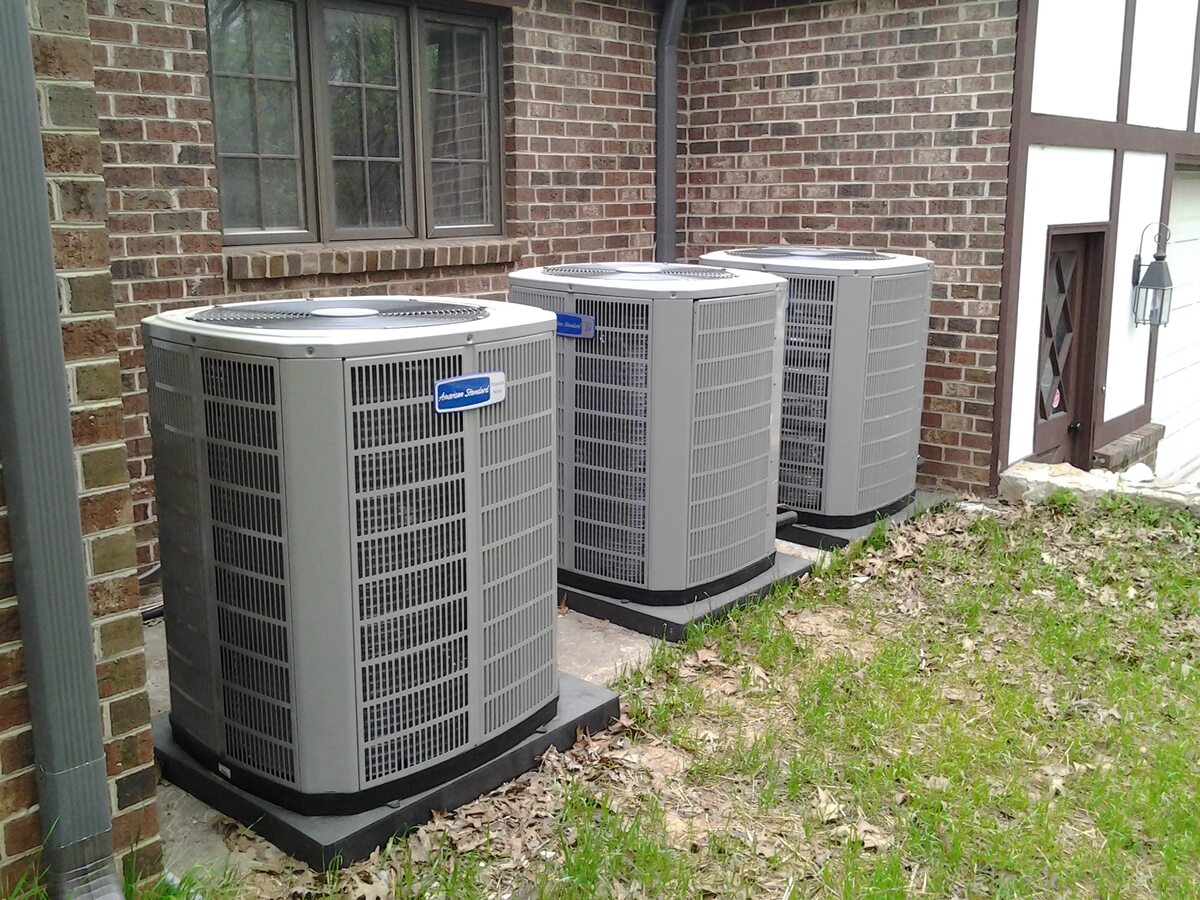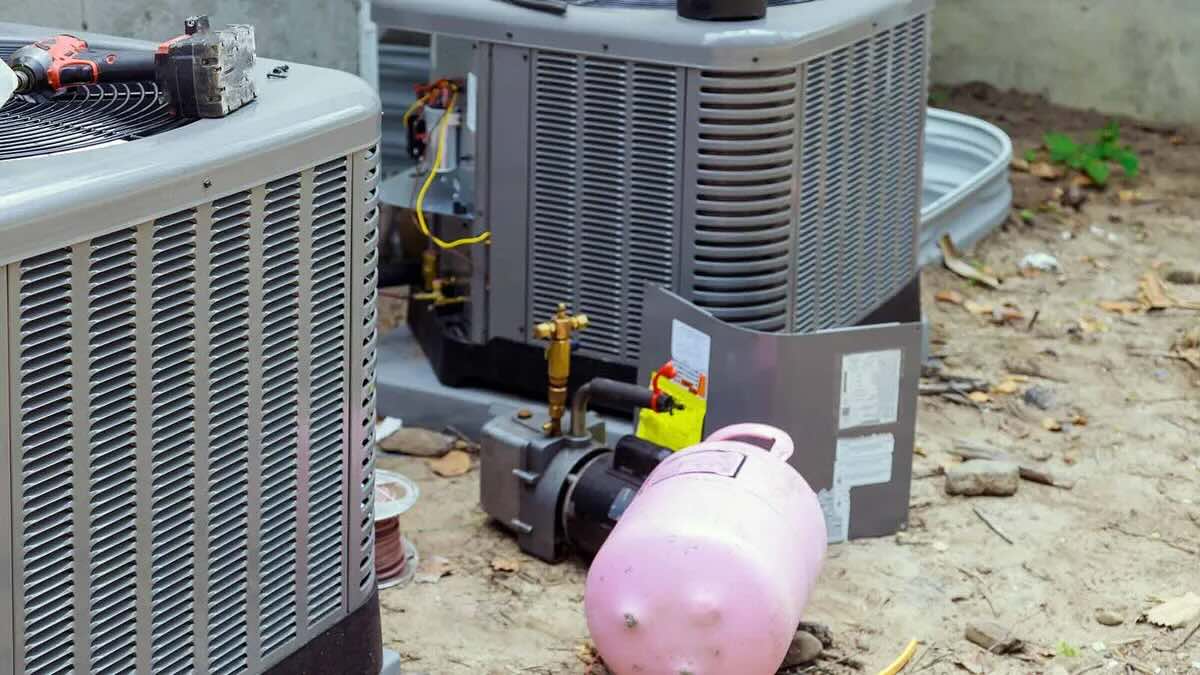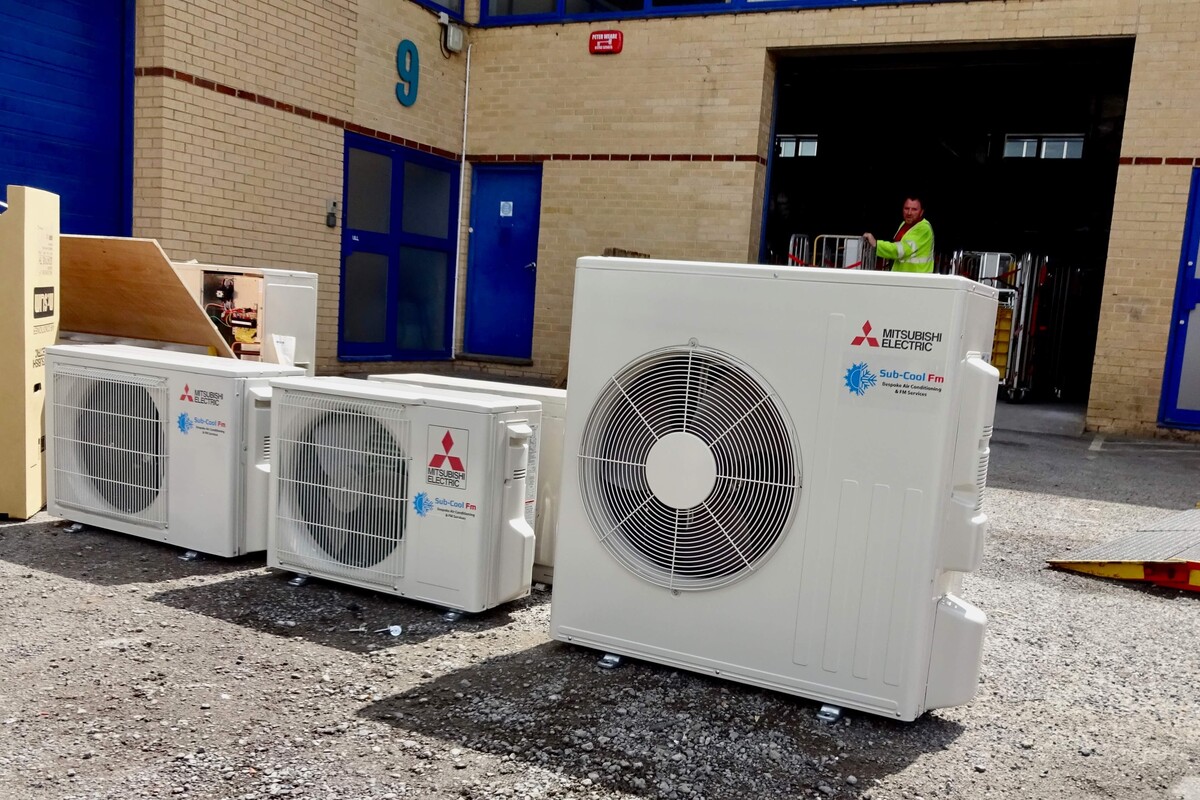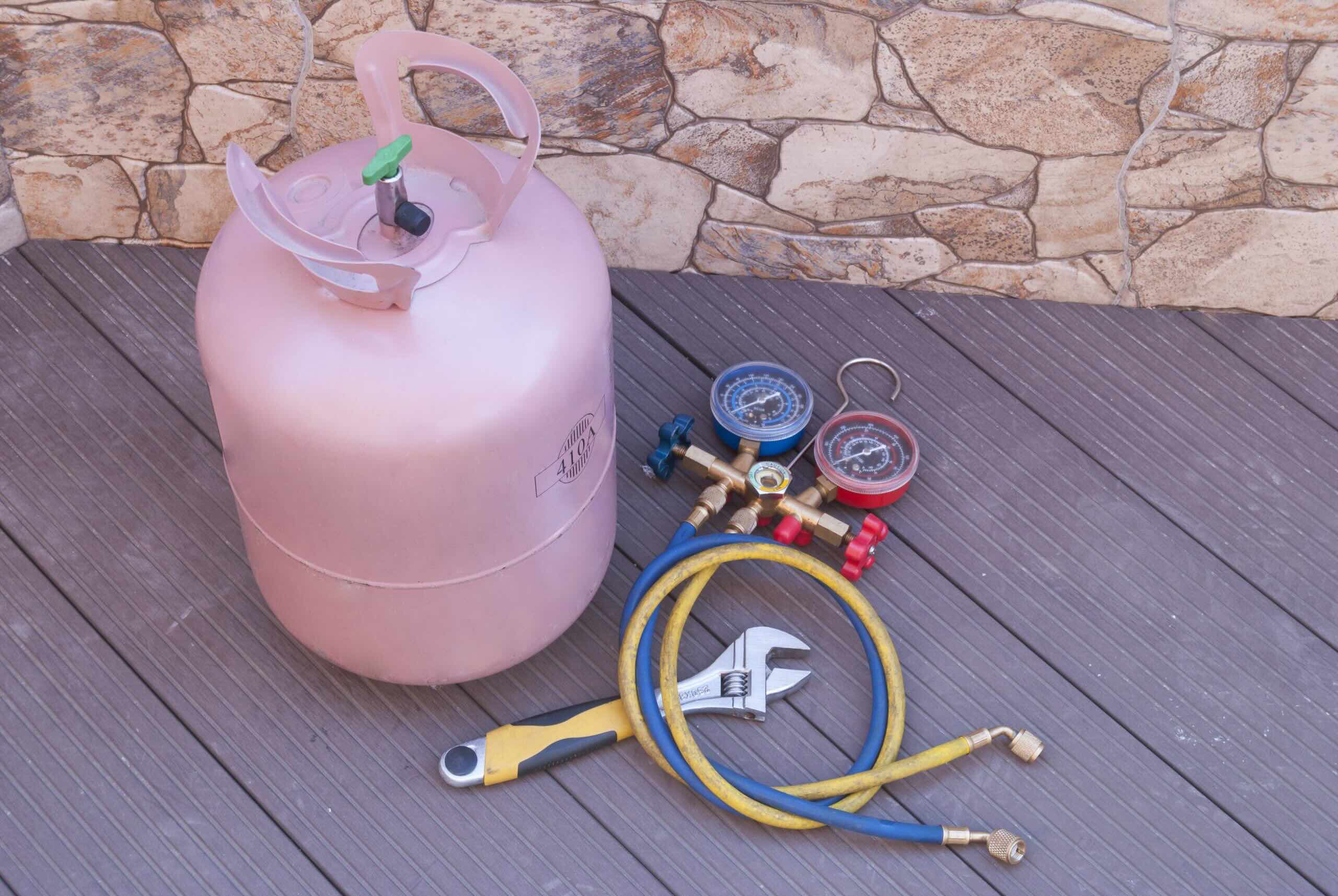Home>Home Maintenance>How Much Is Air Conditioning Freon
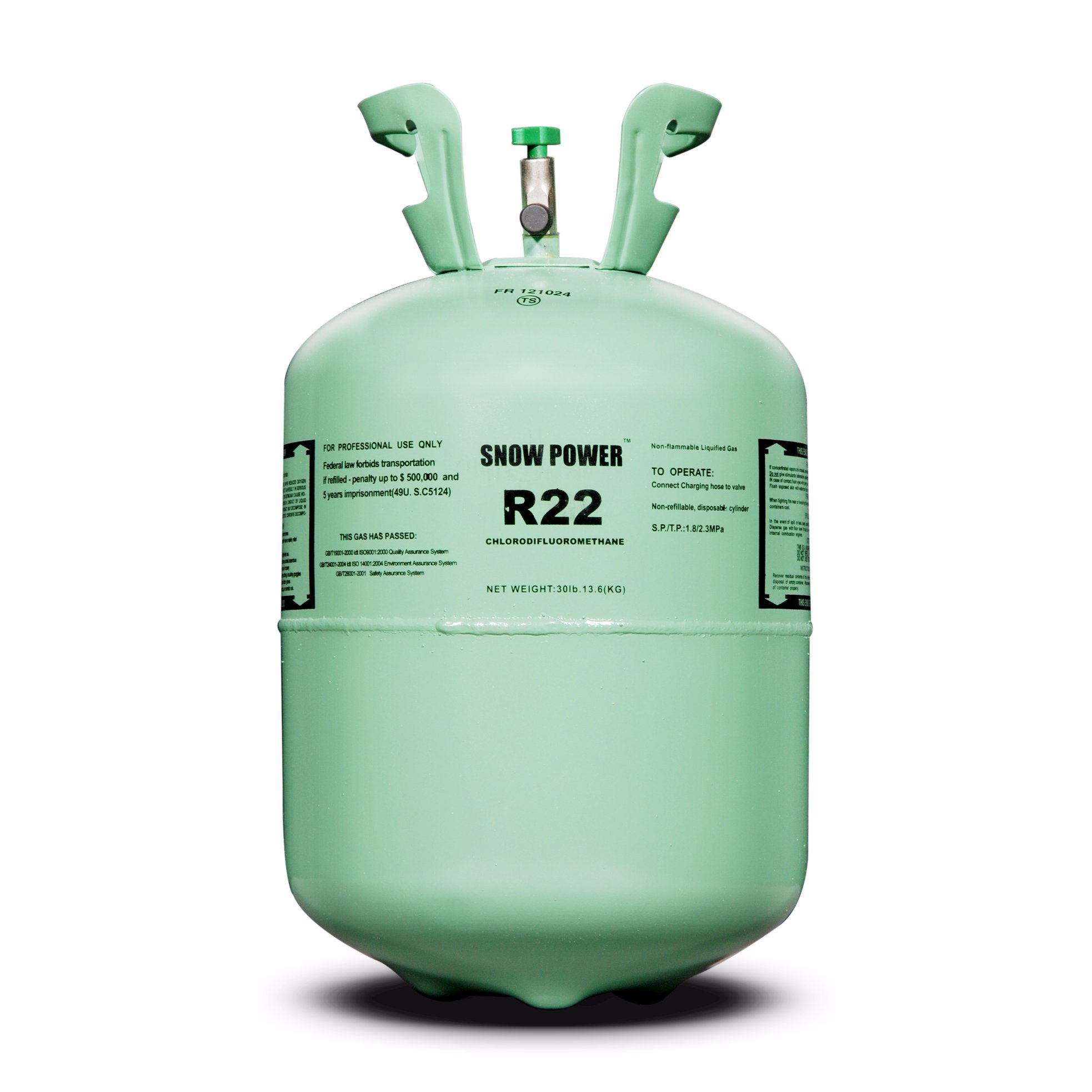

Home Maintenance
How Much Is Air Conditioning Freon
Modified: March 6, 2024
Find out the cost of air conditioning Freon for your home maintenance needs. Get expert advice and find affordable options to keep your AC running smoothly.
(Many of the links in this article redirect to a specific reviewed product. Your purchase of these products through affiliate links helps to generate commission for Storables.com, at no extra cost. Learn more)
Introduction
Welcome to our comprehensive guide on air conditioning freon! In this article, we will explore what air conditioning freon is, the different types of freon and their uses, how much freon an air conditioner typically uses, factors that can affect freon levels, signs of low freon in an air conditioner, the cost of recharging freon, and whether you should opt for DIY freon recharge or professional service.
With the summer season approaching, it’s essential to ensure that your air conditioner is working efficiently to keep your home cool and comfortable. Understanding the role of freon in your AC system and how to maintain proper levels is crucial for optimal performance.
So, let’s dive into the world of air conditioning freon and equip ourselves with the knowledge needed to make informed decisions about our home maintenance routines.
Key Takeaways:
- Freon is essential for cooling in air conditioners, but it should not be released into the environment due to its harmful impact. Regular maintenance and prompt repairs are crucial for optimal performance and environmental safety.
- Recognizing signs of low freon levels, such as weak airflow and inadequate cooling, is important for taking timely action. While a DIY recharge may offer cost savings, safety and expertise should be prioritized, making professional service a recommended choice.
What is Air Conditioning Freon?
Air conditioning freon, commonly known as refrigerant, is a crucial component in air conditioning systems that enables them to cool indoor spaces. It is a colorless, odorless gas or liquid that undergoes a phase change from gas to liquid and vice versa, absorbing and releasing heat in the process.
The use of freon in air conditioning systems goes back several decades. It is called by different names depending on the type of refrigerant used, such as R-410A, R-22, or R-134a. These refrigerants are classified under hydrochlorofluorocarbons (HCFCs) or hydrofluorocarbons (HFCs), which are regulated due to their impact on the environment.
Freon works by circulating through a closed-loop system in an air conditioner. It starts as a low-pressure gas, absorbing heat from the indoor air as it flows over the evaporator coil. The freon then undergoes compression, transforming into a high-pressure gas. This gas is pumped to the outdoor condenser unit where it releases the absorbed heat into the outside environment. As it cools down, the freon condenses back into a liquid and returns to the indoor unit to repeat the cycle.
The phase change of freon allows it to extract warm air from the indoor environment and release it outside, creating a cool and comfortable atmosphere inside the home. Without freon, air conditioning systems would not be able to provide the desired cooling effect.
It is important to note that while freon is essential for air conditioner functionality, it should not be released into the atmosphere. Freon is a potent greenhouse gas that can contribute to ozone depletion and global warming. If you suspect a freon leak in your system, it is crucial to have it repaired or recharged by a certified HVAC professional who can safely handle the refrigerant.
Now that we have a basic understanding of what air conditioning freon is, let’s explore the different types of freon used in air conditioning systems and their specific applications.
Freon Types and Their Uses
There are several types of freon or refrigerants used in air conditioning systems, each with its own unique properties and applications. Let’s take a closer look at some common freon types and their uses:
1. R-410A: R-410A is one of the most widely used refrigerants in modern air conditioning systems. It is an HFC refrigerant that does not contribute to ozone depletion. R-410A has replaced older refrigerants like R-22, which were phased out due to their harmful effects on the environment. It offers excellent cooling efficiency and is commonly used in residential and commercial air conditioners.
2. R-22: Also known as HCFC-22, R-22 is an older refrigerant that has been widely used in air conditioning systems for many years. However, due to its ozone-depleting properties, its production has been phased out in many countries. R-22 is still used in some existing HVAC units, but its availability is decreasing, and it is being replaced by more environmentally friendly alternatives like R-410A.
3. R-134a: R-134a is commonly used in automotive air conditioning systems. It is an HFC refrigerant that is non-toxic and non-flammable. R-134a is known for its low environmental impact and has been widely adopted as a replacement for older automotive refrigerants like R-12.
4. R-404A: R-404A is a refrigerant blend commonly used in commercial refrigeration systems, including walk-in coolers and freezers. It is an HFC refrigerant that provides excellent cooling performance at low temperatures.
5. R-407C: R-407C is another refrigerant blend used in air conditioning systems. It is an HFC refrigerant that offers a good balance between cooling performance and environmental impact. R-407C is often used as a substitute for R-22, as it can be retrofitted into existing R-22 systems.
It’s important to consult your air conditioner’s manufacturer or a qualified HVAC professional to determine the appropriate refrigerant type for your specific system. The use of the wrong refrigerant can lead to poor performance, system damage, and potential safety hazards.
Now that we have an understanding of different freon types and their applications, let’s delve into how much freon an air conditioner typically uses.
How Much Freon Does an Air Conditioner Use?
The amount of freon, or refrigerant, that an air conditioner uses can vary depending on several factors, including the size and type of the unit. Air conditioner manufacturers typically specify the correct refrigerant charge, which is measured in pounds or ounces, for optimal performance.
For residential air conditioning systems, the freon charge can range anywhere from 1.5 to 4 pounds, with most systems falling within the 2 to 3-pound range. However, it’s important to note that the exact amount will depend on the specific unit and its cooling capacity.
It’s crucial to maintain the proper freon charge in your air conditioner. Too little or too much refrigerant can negatively impact the cooling efficiency and overall performance of the system. Insufficient freon can result in decreased cooling capacity, while an overcharge can lead to excessive strain on the compressor and potential damage to the system.
It’s worth mentioning that newer air conditioning units, especially those using the environmentally friendly R-410A refrigerant, may require different freon charges compared to older systems that use R-22. Therefore, it’s vital to consult the manufacturer’s guidelines or seek the assistance of a qualified HVAC technician to ensure the correct refrigerant charge for your specific unit.
Now that we have an idea of how much freon an air conditioner typically uses, let’s explore the factors that can affect freon levels in an AC system.
Factors Affecting Air Conditioner Freon Levels
Several factors can affect the freon levels in an air conditioner, which can ultimately impact the system’s performance and efficiency. It’s important to understand these factors to ensure proper maintenance of your AC unit. Here are some key factors to consider:
1. Leakages: Freon leaks are one of the most common causes of low freon levels in an air conditioner. Over time, small leaks can develop in the refrigerant lines, coil, or fittings, leading to a gradual loss of freon. It’s important to address any leaks promptly to prevent further damage to the system and to maintain the optimal refrigerant charge.
2. Poor Installation: Inadequate or improper installation of the air conditioning system can result in incorrect freon levels. If the unit was not properly charged with the correct amount of freon during installation, it can lead to performance issues. It’s essential to hire a qualified HVAC technician who follows the manufacturer’s guidelines for installation and refrigerant charging procedures.
3. System Age: Older air conditioning systems, particularly those that use the phased-out R-22 refrigerant, are more prone to freon leaks and may require more frequent recharging. These systems may also have components that are more susceptible to wear and tear, leading to potential refrigerant loss.
4. Component Damage or Corrosion: Damaged or corroded components, such as the coil, can result in freon leaks. Harsh environmental conditions, poor maintenance, or physical damage to the unit can cause these issues. Regular inspections and maintenance can help identify and address any damage or corrosion before it leads to freon loss.
5. System Size: An improperly sized air conditioning system, either oversized or undersized, can impact freon levels. An oversized unit may cycle on and off frequently, leading to refrigerant leaks, while an undersized unit may struggle to cool the space, putting additional strain on the system and potentially causing freon loss.
6. Extreme Temperatures: Extreme hot or cold temperatures can potentially affect freon levels. High temperatures can cause the freon to expand, leading to pressure buildup and potential leaks. Conversely, extremely cold temperatures can cause the freon to contract, reducing pressure and potentially causing low freon levels.
Regular maintenance, including inspections for leaks, proper installation, and prompt repairs, is essential for maintaining optimal freon levels in your air conditioning system. Monitoring these factors can help ensure the longevity and efficiency of your unit.
Now that we understand the factors that can affect freon levels, let’s explore the signs that indicate low freon levels in an air conditioner.
It’s important to have a professional check your air conditioning system for leaks and recharge the freon if needed. Using the wrong type or amount of freon can damage your system and harm the environment.
Read more: How Much Are New Air Conditioning Units
Signs of Low Freon in an Air Conditioner
Low freon levels in an air conditioner can lead to diminished cooling performance and inefficient operation. It’s important to be aware of the signs that may indicate low freon levels in your AC system. Here are some common indicators to look out for:
1. Weak Airflow: If you notice a significant decrease in the airflow coming from your air conditioning vents, it could be a sign of low freon levels. Insufficient refrigerant can restrict the cooling capacity of the system, resulting in weaker airflow.
2. Inadequate Cooling: If your air conditioner is not providing the level of cooling you expect, low freon levels could be the culprit. Insufficient refrigerant can cause the system to struggle to reach and maintain the desired temperature, resulting in inadequate cooling performance.
3. Longer Cooling Cycles: Low freon levels can cause your air conditioner to run for longer periods to maintain the set temperature. If you notice that your AC unit is constantly running and struggling to reach the desired temperature, it may indicate low freon levels.
4. Frozen Evaporator Coil: A frozen evaporator coil is a common symptom of low freon levels. When there is insufficient refrigerant to absorb heat from the indoor air, the evaporator coil can become too cold, causing condensation to freeze on the coil. If you notice ice buildup on the coil, it’s essential to address the issue promptly to prevent further damage to the system.
5. Hissing or Bubbling Noises: If you hear hissing or bubbling noises coming from your air conditioning unit, it could indicate a freon leak. These sounds often occur near the refrigerant lines or coil and should be addressed by a professional HVAC technician.
6. Increased Energy Bills: Low freon levels can cause your air conditioner to work harder to cool the space, leading to increased energy consumption and higher utility bills. If you notice a sudden spike in your energy bills without a corresponding increase in usage, it’s worth investigating the possibility of low freon levels.
If you suspect low freon levels in your air conditioner, it’s important to contact a qualified HVAC technician to diagnose and address the issue. Attempting to recharge freon yourself without proper knowledge and equipment can lead to further damage to the system and potential safety hazards.
Now that we have covered the signs of low freon levels, let’s discuss the cost associated with recharging air conditioning freon.
Cost of Recharging Air Conditioning Freon
The cost of recharging air conditioning freon can vary depending on several factors, including the type of refrigerant required, the amount of freon needed, local market rates, and whether you choose to hire a professional or attempt a DIY recharge. Here are some factors to consider when determining the cost:
1. Refrigerant Type: The cost of freon recharging can vary based on the refrigerant type. Older refrigerants like R-22 tend to be more expensive due to their phased-out status and limited availability. Newer, environmentally friendly refrigerants like R-410A may be more affordable since they are widely used and more readily available.
2. Refrigerant Amount: The amount of freon required for recharging depends on the size and capacity of your air conditioning system. Larger units may require more refrigerant, which can impact the overall cost of the recharge.
3. Professional Service: Hiring a professional HVAC technician to recharge the freon will incur additional labor costs. The technician will assess the system, identify any leaks or other issues, and recharge the freon to the appropriate level. The cost of professional service can vary based on the technician’s expertise, location, and company rates.
4. DIY Recharge: Some homeowners may choose to recharge air conditioning freon themselves to save on labor costs. However, it’s important to note that handling refrigerant requires special equipment, knowledge, and proper safety measures. DIY recharges can be risky and may not address underlying issues such as leaks. Additionally, improper handling of freon can be harmful to the environment. It is recommended to consult a professional for any issues related to refrigerant recharging.
5. Additional Repairs: If the low freon levels are due to refrigerant leaks or other system malfunctions, additional repairs may be necessary. These repairs can incur additional costs, so it’s important to factor them in when considering the overall cost of recharging freon.
It’s difficult to provide an exact cost range for freon recharging, as it can vary significantly depending on the factors mentioned above. It’s best to consult with local HVAC professionals to get cost estimates specific to your situation.
Remember, maintaining the correct freon levels in your air conditioning system is essential for optimal performance and efficiency. Regular maintenance and addressing any issues promptly can help prevent low freon levels and potential system damage.
Now that we’ve discussed the cost of recharging freon, let’s weigh the pros and cons of DIY freon recharge versus professional service.
DIY Freon Recharge vs. Professional Service
When it comes to recharging air conditioning freon, homeowners have the option to either attempt a DIY recharge or hire a professional HVAC technician. Let’s explore the pros and cons of each approach to help you make an informed decision:
DIY Freon Recharge:
Pros:
– Cost Savings: One of the main advantages of a DIY freon recharge is the potential cost savings. By skipping the professional service fees, you may be able to save money on the overall process.
– Convenience: If you have some technical knowledge and experience in handling refrigerants, a DIY recharge can be a convenient option. You can perform the recharge at a time that suits you without having to schedule an appointment with a professional.
Cons:
– Safety Risks: Handling freon requires proper safety measures and equipment. Without the necessary knowledge and experience, you may be at risk of injury or exposing yourself to harmful refrigerant chemicals. It’s important to prioritize safety when considering a DIY recharge.
– Limited Expertise: HVAC technicians undergo extensive training and have the expertise to diagnose and address underlying issues related to low freon levels. With a DIY recharge, you may not have the knowledge or tools to identify and fix potential leaks or other system problems.
– Lack of Warranty Coverage: If you attempt a DIY freon recharge, any issues or further damage that may arise from the recharge may not be covered under the manufacturer’s warranty. This can result in additional expenses if further repairs or replacements are needed.
Professional Service:
Pros:
– Expertise and Experience: HVAC professionals have the training and experience to properly diagnose low freon levels, identify any underlying issues, and perform the recharge accurately. They can ensure that the refrigerant is charged to the correct levels for optimal system performance.
– Guaranteed Workmanship: Professional HVAC technicians typically offer warranties or guarantees on their work. This provides peace of mind, knowing that if any issues arise after the recharge, they will be addressed without incurring additional costs.
– Compliance with Regulations: Professional HVAC technicians are well-versed in the regulations and guidelines surrounding refrigerant handling and disposal. They will ensure that the recharge is done in compliance with environmental regulations.
Cons:
– Higher Cost: Hiring a professional HVAC technician for freon recharging incurs additional costs for labor and services. The upfront cost may be higher compared to a DIY recharge.
– Scheduling and Timing: Professional service requires scheduling an appointment and may not offer the same level of convenience as a DIY recharge. You may need to wait for an available time slot that aligns with your schedule.
Ultimately, the decision between DIY freon recharge and professional service depends on your comfort level, knowledge, and safety considerations. If you are confident in your skills and have experience working with refrigerants, a DIY recharge may be an option. However, for most homeowners, it is recommended to hire a professional HVAC technician to ensure the job is done correctly and to minimize the risk of further damage or safety hazards.
Now that we’ve discussed the options for freon recharging, let’s wrap up our guide on air conditioning freon.
Conclusion
In conclusion, understanding air conditioning freon is essential for maintaining the optimal performance and efficiency of your AC system. Freon, or refrigerant, plays a crucial role in absorbing and releasing heat to provide a cool and comfortable indoor environment. By familiarizing ourselves with the different freon types and their uses, we can make informed decisions about our air conditioning maintenance.
We’ve learned that the amount of freon an air conditioner uses can vary depending on factors such as the size and type of the unit. It’s crucial to maintain the proper freon charge to ensure optimal performance and avoid potential system damage. Factors such as leakages, system age, and poor installation can affect freon levels, so regular inspections and prompt repairs are key.
Recognizing the signs of low freon levels, such as weak airflow and inadequate cooling, enables us to take appropriate action. Whether you choose to recharge freon yourself or hire a professional HVAC technician, addressing low freon levels is crucial for restoring the system’s performance and efficiency.
When considering recharging air conditioning freon, it’s important to factor in the cost involved. The cost can vary depending on factors such as the refrigerant type, amount of freon needed, and whether you opt for professional service or a DIY recharge. While a DIY recharge may offer cost savings, it’s crucial to prioritize safety and consider the potential risks and lack of expertise compared to professional service.
In the end, maintaining the correct freon levels in your air conditioning system is crucial for optimal performance, energy efficiency, and overall comfort. Regular maintenance, timely repairs, and seeking professional assistance when needed can ensure the longevity and effectiveness of your AC unit.
We hope that this comprehensive guide has provided valuable insights into air conditioning freon and its importance in maintaining a cool and comfortable home. By staying informed and proactive about freon maintenance, you can enjoy optimal cooling performance from your air conditioning system for years to come.
Frequently Asked Questions about How Much Is Air Conditioning Freon
Was this page helpful?
At Storables.com, we guarantee accurate and reliable information. Our content, validated by Expert Board Contributors, is crafted following stringent Editorial Policies. We're committed to providing you with well-researched, expert-backed insights for all your informational needs.
